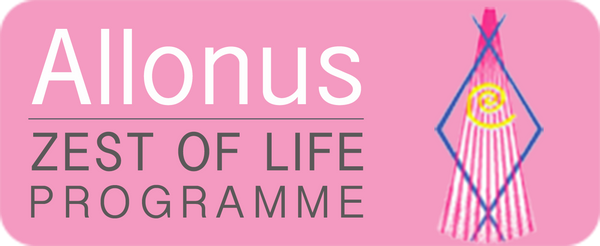Hope
Share
Hope is not wishful thinking. It is rooted in the belief that we are worthy, enjoying inner peace and sense of self, love and inner peace. We each hold different levels of positive and negative coping levels, strategies we have learned and use daily without conscious awareness or thinking. Hope is a goal, an emotion generated by how we feel and by our inner will and energetic support. Emotions are involved in all that we do. The effects are underestimated and ignored most of the time, yet Somoto-Sensory and Psycho-Somoto influences are a big part of our daily health.
Hope is more than a feeling, it is a soul whisper, a quiet voice that rises in the darkest hours, reminding us that something better awaits. We live in a world that often prizes logic and proof whilst hope sits quietly in the background, unmeasured, often undervalued, yet undeniably powerful. It is the invisible thread that holds us together during illness, trauma, heartbreak, and uncertainty. It is not naïve optimism but spiritual sustenance, keeping the physical and etheric heart beating when reason falters.
The opposite effect of hope is ‘hopelessness’. Research has spotlighted that hope is involved in how we feel, underlying health issues, involved in how well we recover or increase recovery rates after a disorder.
The British Heart Foundation Society recently presented new research that looked at the effect of emotions around the health of our physical heart. The results showed that patients who experience feelings of hopelessness had an increased risk of dying or suffering a heart attack.
Researchers noted hopelessness was linked to a six-fold higher risk of death. Even in men who did not have cardiovascular disease, finding hopelessness more than doubled the risk of fatality. Improved hope was linked to reduced cardiovascular symptoms like angina and post-stroke fatigue. By addressing emotional impacts individually, we can ultimately help improve our health and lower death rates in at-risk groups.
Higher levels of hope protected women against experiencing angina – pain or discomfort in the chest often caused by coronary heart disease. Additionally, a study of stroke patients of both sexes proved greater hope was strongly linked to reduced levels of post-stroke fatigue.
Why acknowledging self and self-care saves lives. Kindness and physical contact are also linked to improved will and hope. An important self-prescription for maintaining our wellbeing and quality of life, alongside current medical care. Essentially, it is important to look after our physical and emotional well-being, they go hand in hand and by addressing emotional impacts we can improve our lifespan.
Hope and Hopelessness comes in different packages.
Acknowledgment is a factor in hope. Being acknowledged by others, is a self-esteem, self-worth, any time of the day boost. Acknowledging ourselves is just as important. In workshops and 1-2-1 sessions I often find individuals have ‘lost’ themselves, they don’t know who they are. So focused on the treadmill of life, they have lived decades of self-neglect, ignoring themselves which has impacted their long-term physical health unknowingly. Putting ourselves last is a habit and condition passed down the generations.
Workplace investigations have shown that health problems in the heart correlate strongly with under acknowledgement, criticism and career disappointments. When we encourage, support people with person-centred focus, kindness, inspiration and guidance in the workplace we give them hope. Criticism cuts us down emotionally and brings long term affects our general health.
Inner heart current of Hope
Hope is sacred energy. It doesn’t shout. It breathes.
It holds space for what we cannot yet see.
In my work supporting women through emotional trauma, menopause, I’ve seen how hope becomes a turning point. When the body is weary, when the mind is overwhelmed, our 6th senses and heart rhythms becomes a divine knowing, a flicker of light when the tunnel feels endless. Spiritual traditions across cultures speak of faith and endurance, but hope is their silent sibling: not dogmatic, not prescribed. It is deeply personal. A moment of stillness. A breath taken when you thought you couldn’t anymore.
Emotional Insight: Hope Anchors Us
Trauma, loss, hormonal upheaval chip away at our emotional resilience, yet hope rebuilds. It doesn't deny pain; it walks with it. You are not finished yet. When women tell me they feel ‘lost,’ what they often mean is disconnected from self and hope. Their identity has shifted, their body has changed and the world feels unfamiliar. That’s when I remind them: your heart’s inner power is still here. Your story isn’t over. Hope brings us back to that truth.
Hope as a daily awareness practice.
We can nurture hope like a daily ritual:
- Place your hands on your heart connect to self.
- Breathe deeply into the stillness of the heart.
- journal your thoughts and goals, a letter to your future self.
- Cry if you need to. Let it cleanse.
- Support your heart flame, light a candle for intention.
- Speak words of encouragement, be kind to self.
Hope isn’t wishful thinking. It’s rooted in a belief that we are worthy of healing, receiving love, peace.
Remember
Where there is breath, there is hope.
Where there is hope, there is possibility.
And where there is possibility, the soul begins to sing again.
Grab hold of your inner power, connect and empower via the heart
Let’s stop treating hope as fragile.
It is, in truth, one of our greatest strengths.
Article by Joy Wisdom - Founder of Joy Wisdom Trust and Allonus Ltd.
www.joywisdomtrust.org
